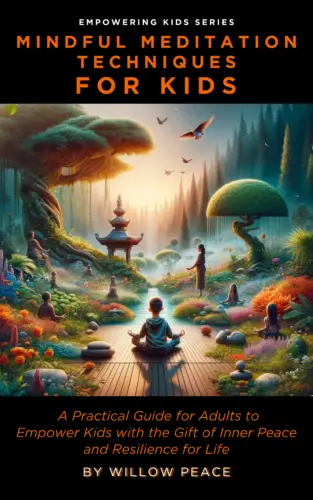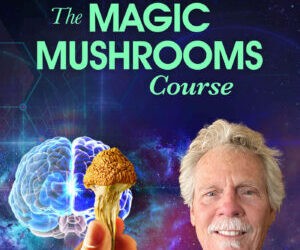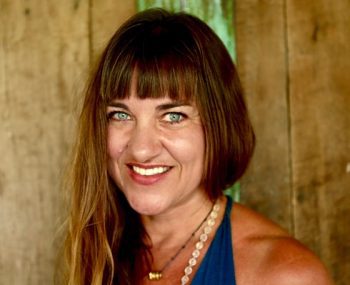Guest writer for Wake Up World
When we’re facing times of transition, it can be tempting to bury our heads in the sand, busy ourselves so we don’t have to think about change, or numb whatever feelings that start to bubble up. Because I’m dealing with a very recent empty nest, I notice all the ways I’m trying to skip feeling all the feels that arise (often with tears) as I consider coming back home from my recent travels to a home that no longer houses my daughter.
Transition times are a normal part of growing, evolving, and transforming. But for the parts of us that might resist or fear change, it can be helpful to be intentional about how we navigate times of transition. Here are a few things that help me when the world as I know it is shifting, falling apart, or growing new wings.
1. Slow down.
When I’m rushing around, there’s not enough time to digest what’s happening or be intentional about how to make the most out of transition times. As a Buddhist monk once told me, “We must meditate so we can take the time to say ‘Wow, that happened.’” Wow. That happened. Wow. That’s happening. Or as my therapist says, “Self is in the pause.” Take advantage of pregnant pauses when you’re in times of transition.
2. Calling upon the beauty and wisdom of nature.
Right now, I’m looking out the window out onto a forest from my cabin above the sanctuary at Omega Institute, where I’m teaching this week. Nature always seems to help me process change. We humans can find oracular ways of communicating with nature that can feel very healing and intuitive. Ever tried asking a tree or a rock or a waterfall what you should do next during times of transition? I can’t believe how wise the mountain near my house seems to be when I feel stumped.
3. Breaking away from your daily routine.
It’s easy to get into grooves with our schedules, our routines, and our auto-pilot lives. The minute you start breaking routines- getting up earlier, mixing things up, going someplace you rarely go- you just might find yourself with different perspectives that help you see more clearly.
4. Stay humble in the not knowing.
Times of transition are often times of un-knowing. Many of us are conditioned to believe something is wrong with us if we don’t know. The pressure to know- and to rush knowing- is often the opposite of what supports transition times.
5. Be discerning about whose advice you trust.
Many people are quick to try to tell you what to do when you’re in a transition phase. But nobody else is YOU. While listening to diverse perspectives can sometimes be helpful- to get you out of your own myopia- you are the only one who can really make the right decisions that might face you during times of transition. Be especially wary of those who might take advantage of you during the vulnerability of transition times. When people are in transition, they’re more susceptible to cults, to authoritarian leaders, to narcissistic relationships, and to exploitative power dynamics that could leave them with regrets.
6. Protect yourself from other people’s agendas for you.
When you’re in transition, you might be an easy mark to be swayed towards someone else’s agenda for you, even if it’s not what’s in your best interest. While it’s wonderful to be helpful to other, to have altruistic intentions, and to focus on where you’re needed, don’t forget to ask yourself “What’s in it for me?” If you’re being influenced towards someone else’s agenda and you can’t remember why it benefits you, you might want to slow down. “Maybe. Let me consider it” is often a safe answer in times of transition.
7. Don’t forget to eat well, exercise, and get enough sleep.
Sometimes the stress of transition times causes us to neglect our basic self care. When we’re stressing about uncertain times, we can get sloppy with our health habits, start self-medicating with substances that make transitions harder, and suffer from insomnia because of our anxious or racing thoughts. Making sure we go for a walk outside, hit the gym, go dancing, or attend a yoga class can keep our blood moving. And remembering we’re valuable enough to nourish well keeps us from adding health challenges on top of uncertain times.
8. Try a green juice cleanse.
Many spiritual practitioners have historically used fasting as part of their spiritual practice, especially during times of transition. While, as a physician, I can’t recommend fasting, I do recommend cleansing with high-density nutritious green juice cleansing to help purify the body and clarify the mind.
9. Take a pilgrimage.
There’s nothing like walking the Camino de Santiago, visiting Lourdes, or just going to your closest National Park as a transition-supporting pilgrimage. If you go on a quest with the intention of finding answers inside or gaining clarity about something uncertain in your life, you’re likely to create the conditions for more Self-energy and all the 8 C’s of Self that come with it- curiosity, calm, clarity, compassion, courage, connection, confidence, and creativity. Because trauma can cause of crisis of imagination, even the smallest, most meager pilgrimage can open up portals of possibility that help us see the bigger picture more clearly.
10. Go on a retreat with a community of support.
During times of transition, I’m often most supported when I’m with others who are also in transition. I tend to find inspiration, comfort, companionship, creative ideas, and a calming sense of connection, especially if I’m with others who are milking their transition times for the transformation that becomes possible during times of transition.
With this in mind, my partner Jeffrey Rediger, MD, MDiv and I are hosting a TRANSITIONS & TRANSFORMATION retreat for health care providers and therapists in Mill Valley, CA in September. If you or someone you love is in a transition time or needs extra support from a community of other health care providers and therapists post-Covid, we invite you to join us. (Save $200 if you register now.)
If that’s not relevant or not your cup o’ tea, I’m also teaching Internal Family Systems & Memoir Writing on the island of Gozo in the country of Malta in November. This retreat was intentionally scheduled during the US presidential election over the November 5 election day- because no matter what happens, that’s going to be a time of transition for most Americans. If you have the luxury of leaving the US during this tumultuous time and processing what happens from the safety of a Maltese island, we invite you to bring all of your “parts” and let them give voice to whatever arises in this writing retreat.
Apply for the IFS & Memoir Writing retreat here. No writing experience is necessary, and all IFS levels are welcome.
About the author:
Lissa Rankin, MD is a mind-body medicine physician on a grass roots mission to heal healthcare, while empowering you to heal yourself. She is the founder of the Whole Health Medicine Institute training program for physicians and healthcare providers, and the New York Times bestselling author of the books Mind Over Medicine: Scientific Proof That You Can Heal Yourself (2013), The Fear Cure (2014), and The Anatomy of a Calling (2015).
Lissa blogs at LissaRankin.com and created the online community HealHealthCareNow.com. She is also the author of several other books, a speaker, a professional artist, an amateur ski bum, and an avid hiker. She lives in the San Francisco Bay area.
Connect with Lissa on Facebook and Twitter, or visit LissaRankin.com.
Automatic writing is a powerful spiritual tool that allows you to connect with loved ones on the Other Side. This sacred practice opens a channel for healing, guidance, and peace, helping you receive their messages of love and support. Automatic writing offers profound possibilities, whether you’re seeking closure or deeper spiritual growth.
During this free online event, you’ll learn how to start automatic writing and recognize the signs and synchronicities that indicate a connection with Spirit. You’ll also experience a guided meditation to feel the presence of a loved one, bringing clarity and comfort to your journey.
If the idea of reconnecting with loved ones resonates with you, take this opportunity to explore automatic writing in a safe and sacred way. Sign up now for this transformative event and begin your journey of healing and connection.
 If you’ve found value in our articles, we’d greatly appreciate your support by purchasing Mindful Meditation Techniques for Kids—A Practical Guide for Adults to Empower Kids with the Gift of Inner Peace and Resilience for Life.
If you’ve found value in our articles, we’d greatly appreciate your support by purchasing Mindful Meditation Techniques for Kids—A Practical Guide for Adults to Empower Kids with the Gift of Inner Peace and Resilience for Life.
In the spirit of mindfulness, we encourage you to choose the paperback version. Delve into its pages away from screen glare and notifications, allowing yourself to fully immerse in the transformative practices within. The physical book enriches the learning process and serves as a tangible commitment to mindfulness, easily shared among family and friends.
Over the past few years, Wake Up World has faced significant online censorship, impacting our financial ability to stay online. Instead of soliciting donations, we’re exploring win-win solutions with our readers to remain financially viable. Moving into book publishing, we hope to secure ongoing funds to continue our mission. With over 8,500 articles published in the past 13 years, we are committed to keeping our content free and accessible to everyone without resorting to a paywall.










